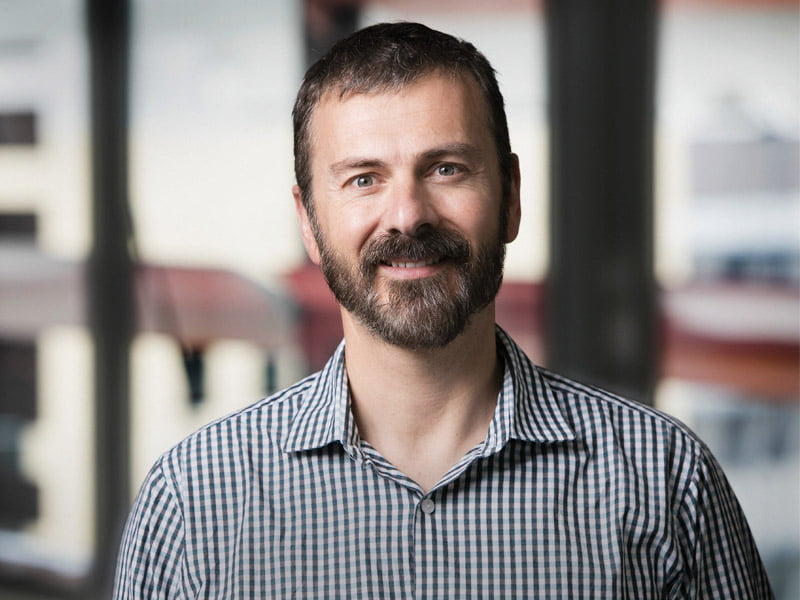The uneasy relationship between the science and technology communities in the US and the Trump Administration – particularly over immigration – presents a huge opportunity for Australia to aggressively recruit world-leading talent.
Data61 chief executive Adrian Turner likens the opportunity to the strategic recruitment by Israel of huge numbers of highly-educated Russian immigrants in the 1990s – trained in mathematics, physics, computer science, engineering and other technical disciplines – which helped form the nucleus of its famed Startup Nation industries.
“There is a country-level opportunity here,” Mr Turner said, “there is an Australian opportunity.”

“If you look at how Israel benefited from the roughly one million immigrants that had a lot of depth around mathematics, that really jump-started its tech industry and fed into its cybersecurity sector.
“Australia has that same opportunity now.”
“If Australia got really aggressive in recruiting from the US and from other parts of the world that are perhaps less attractive for science and research right now, we could have an incredible influx of intellectual horsepower,” he said.
“[These people] could position us as a leader in the creation of some of these new industries that are under-pinned by science and tech. If we move aggressively on that, I think [Australia] would benefit for decades.”
Mr Turner said Data61 had in the past six months put in place a structured international recruitment program to target and approach specific researchers who were leaders in their areas of speciality.
Each of the Data61 science teams had “surfaced people that are doing world-leading, renown and really interesting work” and have a program to reach out directly to those target researchers.
The value proposition is that they would work either directly with Data61, or they would work with Data61 in combination with one of its university partners.
This structure is similar to that used to bring Intel research fellow Genevieve Bell back to Australia (Dr Bell will work with both Data61 and the Australian National University.
Mr Turner said government can definitely help with a national recruitment effort, including – in the case of science targets – public and long-term funding commitments to the recruit’s area of research.
But it can also help through the introduction of special visa classes, and with the promotion of Australia as a serious research and development destination.
Success begets success, Mr Turner says, just as talent attracts talent – and government should be pushing hard to get the best in the world to Australia, which will in turn become a magnet for attracting others.
The primary focus for Data61 is the US, with its disaffected tech community and the increasing volume of the Trump administration’s rejection of science. But it’s not the only market Data61 is targeting.
Data61 is not the Lone Ranger here. Innovation Clearinghouse founder Sandy Plunkett – who advises on ecosystem issues – says running big programs to attract the best tech and science people in the world should be a no-brainer for government. Especially right now.
“’Send us your fired, your Trumpled, your digitally-savvy masses yearning to be free …’ That’s the message Australia should be sending across the Pacific right now,” Ms Plunkett said.
But she says if we’re serious about the opportunity for a 21st century skills recruitment drive, “we can’t rest on the old ‘Aussie quality of life’ meme,” she said. “To get the right talent to consider moving here, the work has to be world-leading.”
“That’s key to luring the right talent and it means identifying and promoting big, bold, ambitious projects. Do we have many of those?”
Blue Sky Alternative Investment’s Venture Capital chief Elaine Stead says the shallow talent pool in Australia is a weakness. And having been identified it has to be addressed.
“I’m biased because I am in the industry, but I do firmly believe the knowledge economy and associated industries are going to be a major pillar of our economy,” Ms Stead said.
“And right now, a primary weakness in growing that [economy] is access to talent, and access to industry,” she said. “And one way to solve that shortage is to access talent from elsewhere.”
She says Adrian Turner is “100 per cent” right, although her emphasis is more on targeting the top tier of global technical skills – the cream of development and engineering talent – as well as C-suite management, who have a depth of experience in scaling global companies.
These people are hard to find in this country.
“If we can take advantage of the current geopolitical climate to do that, then we should,” Ms Stead said.
“We’ve seen the playbook with Israel. That’s exactly what they did.” The second thing that Israel did very well was to attract industry, she said. With its workforce stacked with technical and entrepreneurial talent, multinational tech companies arrived in Israel to set up regional hubs with substantial R&D operations.
“We need the industry here. We need those big tech companies to either be receptacles to talent and the innovations coming out of our country right now. We really don’t have the industry here to support it right now.”
Do you know more? Contact James Riley via Email.

